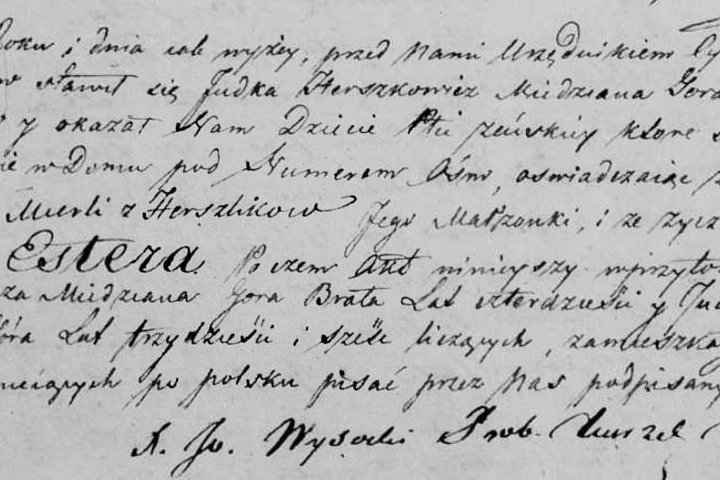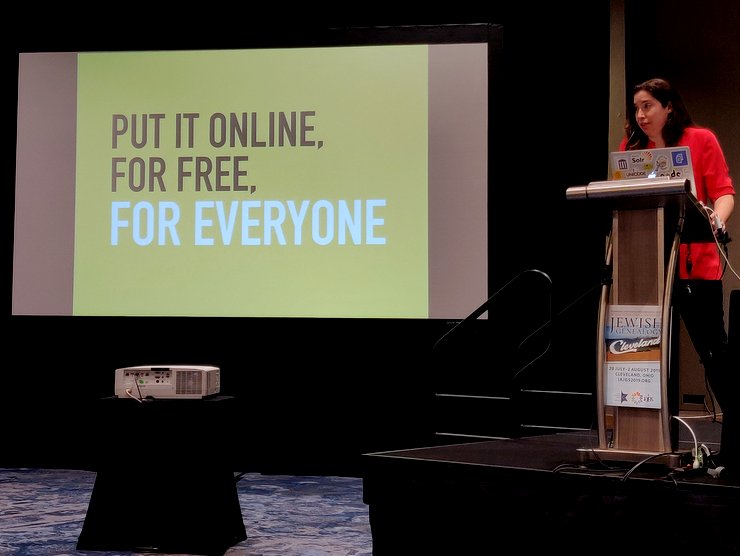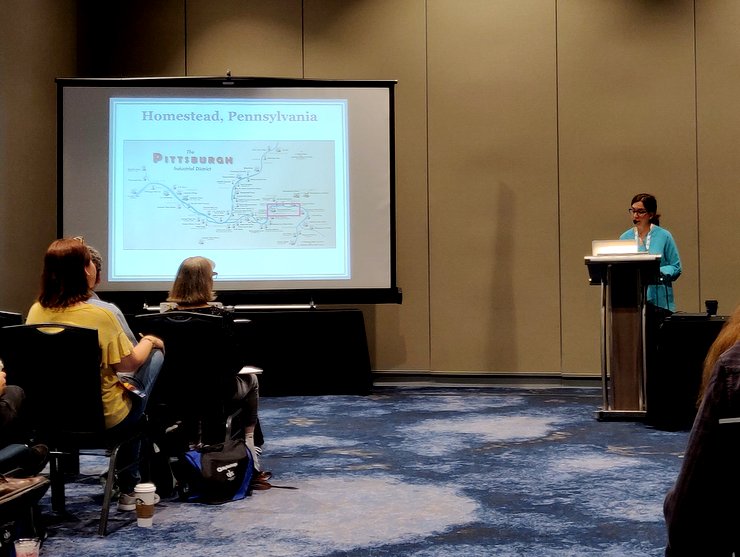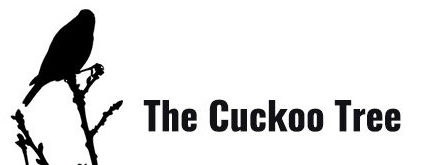I’m just back from the IAJGS International Conference on Jewish Genealogy in Cleveland and wanted to share a brief recap of some of my favorite sessions. This isn’t all of them, of course, but it is as many as I could write up on the flight to New York.

Debra Kay-Blatt and Warren Blatt – Using Pre-1826 Polish Parish Records in Jewish Research
This was a very interesting talk for those who have gotten their Polish Jewish tree back to 1826 and can’t find anything earlier. They suggested checking the Catholic parish registers, but to be aware that Jews in Poland did not use surnames until 1821, so they will be listed under patronymics. Also note that the parish records will not necessarily be the same town that the post-1826 records are in. There were much smaller parishes, so your village that was later grouped with larger town may have had their own parish records. This last little tidbit had me trot off to the first Family History Center I could find after the conference, and led me to discovering several siblings for my great great great grandfather that I didn’t previously know about.
Emily Garber – Beyond the Manifest: Applying the Genealogical Proof Standard to Confirm One’s Ancestral Origins and Conflict Management: Evaluating Evidence of Identity
When I had just started doing genealogy I heard a previous version of Beyond the Manifest at the New York Jewish Genealogical society. I was blown away by how methodical and thorough Emily is in her research. This was the talk that inspired me to research the entire Satanover Benevolent Society (more on that another time), but suffice to say, what I have learned from her talks helped me up my game research-wise, and to lean in to my obsessive tendencies when it comes to research. Both talks were essentially about how to use the genealogical proof standard to help resolve conflicting information and to avoid jumping to conclusions. I would highly recommend any of her talks to those who are looking to improve their skills and become a better researcher. She’s also published several articles in Avotaynu that are equally impressive.

Brooke Schreier Ganz – Reclaim the Records: Using Freedom of Information Laws for Genealogical Research
Hearing Brooke Schreier Ganz talk was like drinking an extremely large cup of coffee, in a good way. Her organization uses Freedom of Information laws to sue government archives and demand they make indexes that were produced with taxpayer money available to the public. It’s hard to underscore how much impact her work has had on those who are researching New York and New Jersey, and they are now expanding the group’s reach to other states including Missouri and Wyoming. Check out their site and if you like what they do, please consider making a donation.
Lara Diamond – Finding Your Family in Russian Empire Records (When You Don’t Speak Russian)
Lara is a fantastic speaker, and her new talk was incredibly useful. Most people who are researching Jewish family inevitably come up against records in hand-written, archaic Cyrillic, because so much of Eastern Europe was under Russian control at one time or another. So many people found this topic compelling, in fact, that they had to move the talk to a larger room to accommodate the crowds of Cyrillic-illiterate that were keen to learn. Lara gave tips for reviewing Russian records for those who have no Russian-language skills. For example, look for what looks like eba, oba, or obna in revision lists which means “daughter of” or what looks like ebr, obr, bury, or burr which means “son of.”
Maciej Wzorek – Documentation of Granting and Loss of Citizenship during Poland’s Interwar Period
Maciej and the team from Polin have been busy in the Lwow archives where they’ve been scanning more than 60,000 records that pertain to the granting and loss of Polish citizenship during the interwar period, which include passport applications (many with photographs) and other vital records. Many of these applications had to do with the changing borders of Poland. These records will go online at Virtual Shtetl at some point this year or early next. They also have plans to digitize more of these types of records. This looks like a treasure-trove of incredibly useful data.

Tammy Hepps – Small Town, Big Data: Reconstructing Defunct Communities Through Technology
I’m always excited when I see anything listed in the catalog as being “advanced,” so I was thrilled to see Tammy Hepp’s presentation about the database she has built to track a now-defunct Jewish community in Homestead, Pennsylvania. I’m trying to not constantly use the word “obsessive” to describe the work of the genealogists I admire, but it would be hard to talk about Tammy’s work without it. She started by researching her great grandfather’s family, then slowly expanded to building a family tree for the entire Jewish community of Homestead. When she wanted to add more and more documents and cross-reference various sub-groups, she realized she needed a database, which she built herself. By broadening the scope of her research to more than just her own family, she’s been able to get a picture of the entire community of Homestead and its decline, which is fascinating.
Zvi Bernhardt – Arolsen Archives and ITS: What It Is, What It Isn’t, and What’s Online
The Arolsen Archives used to be called the International Tracing Service, which was previously affiliated with the Red Cross in the period after World War II, when they sought to help connect family members who had been separated during the war reunite. Zvi talked about what records the Arolsen Archives have available to the public. This week many of their records have gone up on Ancestry, but there are actually more records available on their own site for free. There are other records that you must visit the archives directly to see, which are mainly correspondence files for Holocaust survivors. These are also available at their affiliate libraries, at Yad Vashem in Israel, the Wiener Library in London, and the Holocaust Museum in Washington, DC. During the conference Zvi helped me find lots of previously unseen records about my family.
